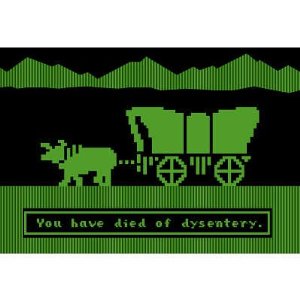(Reposted from the Schlock Mercenary front page)
I’m glad to see that a Federal Judge has ruled against teaching “Intelligent Design” in Pennsylvania biology classes. Intelligent Design is not science – not even BAD science – but it is bad religion. After all, any religion that has to lie about what it is in order to sneak into the building needs to take a long hard look at some of its own tenets regarding morality and integrity.
Now, before my religious friends lynch me… I believe that God created Heaven and Earth, and that His explanation of HOW he did it, as revealed to prophets throughout the ages, is about as complete as He needs it to be. More divine revelation as to His Methods and Means would not make any of us mortals more faithful. After all, most of us pay little enough attention to the revelations that have already been given.
So here I am, devoutly religious, and I detest “Intelligent Design.” The ONLY bit about it with which I agree is some of the disclaimer text which the creationists (let’s call them what they are, shall we?) want to apply to Evolution: It’s a theory, not a fact.
Facts are directly observable and measurable. Fact: we have found fossils. Fact: we have observed the chemical processes by which fossils can be created. Fact: we have observed changes in the genetic makeup of certain populations of animals. Fact: we have observed and demonstrated the mechanics by which genes are expressed, and how they can be damaged through natural events.
We have a very long list of similar facts, and right now the only theory that unifies these into a consistent description of the world in which we live is evolution through random mutation and natural selection. That is not the same as saying that the theory is itself a fact. Sure, we’ve “proven” that evolution explains things better than competing theories, but that is still not the same thing as saying “Evolution is a fact.” Are there holes in the current theories? Absolutely. But let’s not throw out the baby with the bathwater.
I’m not casting aspersions on science. Evolution is some darn good science. It’s tricky, you know, examining the fossil record and the living world and coming up with a description for what happened during the last half a billion years. It’s a little bit like feeding a dictionary into a wood-chipper, and then attempting to re-create the book by observing just one piece out of every 1000 and extrapolating from there. A LOT of things happened on this planet during its history, and the vast majority of them left no discernable trace that we can read today. Scientists work HARD to fill in the gaps, and to make our lives better by theorizing, testing their theories through experimentation, and then refining their theories.
But for all their strengths, the scientific methods we use don’t work well when applied to the description or improvement of the moral codes by which we live. Religion (and by religion I do NOT mean “orthodox heirarchical power structures” — I mean “community and individual spirituality”) DOES work well in this way. Sure, lots of people disagree with the concept of moral absolutes, but it’s hard to argue with somebody who has found happiness through adherence to a spiritual and moral code. It can be argued, after all, that the purpose of life is to learn to live happily.
Is there some paradox here? Mightn’t Evolution suggest that God was lying, or that Moses was lying, or that religion is a sham? Well, certainly it COULD suggest that, but I don’t treat it that way. I believe that eventually our science will be good enough that we can explain to God how we think He did it, and He’ll say “Great job! You get an A! It would have been an A+, but you left ‘Dark Energy’ in place as a fudge factor. Now here’s a nebula full of hydrogen. Show Me what you can build.” Until then, however, I’m not going to use the book of Genesis as a template for a scientific theory. The answers may be in The Book, but we’re expected to show our work. That’s the only way that we can enjoy the fruits of DOING the work.
Let me explain it more simply: My faith enables me to live happily. Science and technology enable me to live LONGER. I don’t want to see science used to discredit religion, because that will make people live LESS happily, and I don’t want to see religion used to discredit science, because that will further delay the delivery of my flying car. If this simple dichotomy can be honestly and openly explained to our children, they can embrace the apparent paradox, and get on with the important things in life: being happy, and figuring out how to build me a jetpack. It’s 2005, for heaven’s sake. I was supposed to have a silica farm on the moon twenty years ago, and I can’t even get my replicator-bots onto the roof of the house.
–Howard
NOTE: Big E, Little e, What Begins With “E”? By way of clarification in the essay above. Big ‘E’ Evolution is the theory that life evolved gradually from self-replicating protein chains. Little ‘e’ evolution is the observable process by which (for instance) strains of bacteria become resistant to antibiotics. I can’t remember where I first got this particular nomenclature, but it works pretty well for essays. It works astoundingly poorly in conversation, because the statement “Evolution is only a theory” is indistinguishable from the statement “evolution is only a theory,” and one of those two statements is patently false. I suppose you can make the capitalization heard by shouting, but that’s what I’m hoping we’ll avoid.
ANOTHER NOTE: The number of comments, and the complexity of the threads they’ve spawned preclude me reading everything you say, or doing much in the way of moderation. Mercy! You people are talkative! Now be nice down there.
A FINAL NOTE: I’ve had a lot of requests for the rights to reproduce, forward, copy, or otherwise redistribute this essay. I have some simple and generous terms:
1) Linking to this page is 100% okay. Link it as an LJ memory, as a bookmark, as a link in an email message, whatever.
2) If you’re quoting me in an essay of your own, or in a sig file, don’t change my words. You can bracket them in your own, but don’t change mine.
3) Provide attribution. “Howard Tayler says” will work for snippets. For sigs, you can just do the cited text followed by “– Howard Tayler”. If you’re copying most of the essay, you can link back to this page with text like “click here for the complete essay.”
4) If you want to print it for handouts, I require that you place the following copyright text at the bottom of the page:
Essay Copyright (C)2005 The Tayler Corporation, All Rights Reserved. www.schlockmercenary.com. Reproduced with permission for non-profit use only.
5) If you want to print it for publication, contact me and we’ll work something out. My email address is [firstname].[lastname] at gmail.com.
–Howard Tayler

